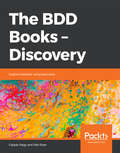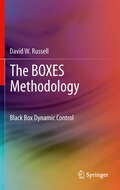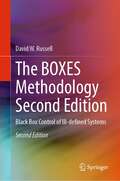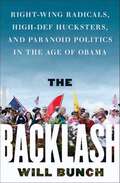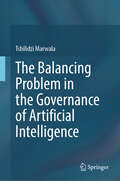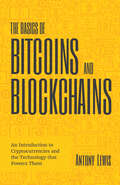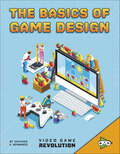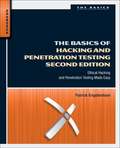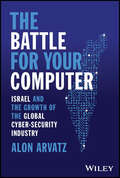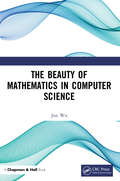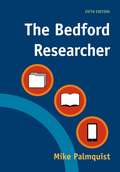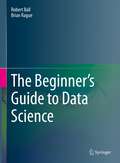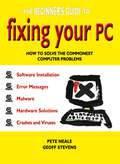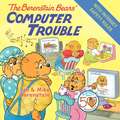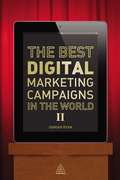- Table View
- List View
The BBC: Myth of a Public Service
by Tom MillsThe BBC: the mouthpiece of the Establishment?The BBC is one of the most important institutions in Britain; it is also one of the most misunderstood. Despite its claim to be independent and impartial, and the constant accusations of a liberal bias, the BBC has always sided with the elite. As Tom Mills demonstrates, we are only getting the news that the Establishment wants aired in public.Throughout its existence, the BBC has been in thrall to those in power. This was true in 1926 when it stood against the workers during the General Strike, and since then the Corporation has continued to mute the voices of those who oppose the status quo: miners in 1984; anti-war protesters in 2003; those who offer alternatives to austerity economics since 2008. From the outset much of its activity has been scrutinised by the secret services at the invitation of those in charge. Since the 1990s the BBC has been integrated into the market, while its independence from government and big business has been steadily eroded. The BBC is an important and timely examination of a crucial public institution that is constantly under threat.
The BDD Books - Discovery: Explore behavior using examples
by Seb Rose Gaspar NagyGet the most out of the discovery phase of Behavior Driven Development (BDD) Key Features Get a comprehensive overview of the discovery phase and see where it fits into BDD Learn specific technical practices needed to successfully drive development Gain insight into how to use BDD in almost any project – not just agile approaches Book Description Behavior-Driven Development (BDD) is an agile approach to software development that insists that detailed requirements for a feature should be defined collaboratively by the business and delivery teams. This book explores, in detail, the collaborative aspect of BDD. The book starts by explaining the need for BDD and describes techniques for getting the most out of the collaboration between the delivery team (those that implement the solution) and the business team (those that work on the requirements). You'll also learn how BDD can be integrated into the development process and answer some common questions, such as “Who should write the scenarios?" and “Should the testers or the developers automate the scenarios?” The last chapters discuss how to use BDD in agile and fixed-price projects and how to involve your business partners in your projects. By the end of the book, you'll have discovered the importance of collaboration and learned techniques to effectively implement these ideas in your software development lifecycle. What you will learn Explore why BDD exists, what challenges it addresses, and how it works Establish structured conversations to finalize requirements Discover techniques to form concrete examples that clearly list requirements Gain insight into the tasks involved while following the BDD approach Get good automated test coverage by tightly connecting tests and scenarios Develop scenarios to get a functional breakdown of a story Who this book is for This book is written for everyone involved in the specification and delivery of software (including product owners, business analysts, developers, and testers). This book is aimed at everyone involved in the project, irrespective of your role, whether you come from a software background or not.
The BOXES Methodology
by David W. RussellRobust control mechanisms customarily require knowledge of the system's describing equations which may be of the high order differential type. In order to produce these equations, mathematical models can often be derived and correlated with measured dynamic behavior. There are two flaws in this approach one is the level of inexactness introduced by linearizations and the other when no model is apparent. Several years ago a new genre of control systems came to light that are much less dependent on differential models such as fuzzy logic and genetic algorithms. Both of these soft computing solutions require quite considerable a priori system knowledge to create a control scheme and sometimes complicated training program before they can be implemented in a real world dynamic system. Michie and Chambers' BOXES methodology created a black box system that was designed to control a mechanically unstable system with very little a priori system knowledge, linearization or approximation. All the method needed was some notion of maximum and minimum values for the state variables and a set of boundaries that divided each variable into an integer state number. The BOXES Methodology applies the method to a variety of systems including continuous and chaotic dynamic systems, and discusses how it may be possible to create a generic control method that is self organizing and adaptive that learns with the assistance of near neighbouring states. The BOXES Methodology introduces students at the undergraduate and master's level to black box dynamic system control , and gives lecturers access to background materials that can be used in their courses in support of student research and classroom presentations in novel control systems and real-time applications of artificial intelligence. Designers are provided with a novel method of optimization and controller design when the equations of a system are difficult or unknown. Researchers interested in artificial intelligence (AI) research and models of the brain and practitioners from other areas of biology and technology are given an insight into how AI software can be written and adapted to operate in real-time.
The BOXES Methodology Second Edition: Black Box Control of Ill-defined Systems
by David W. RussellThis book focuses on how the BOXES Methodology, which is based on the work of Donald Michie, is applied to ill-defined real-time control systems with minimal a priori knowledge of the system. The method is applied to a variety of systems including the familiar pole and cart. This second edition includes a new section that covers some further observations and thoughts, problems, and evolutionary extensions that the reader will find useful in their own implementation of the method. This second edition includes a new section on how to handle jittering about a system boundary which in turn causes replicated run times to become part of the learning mechanism. It also addresses the aging of data values using a forgetfulness factor that causes wrong values of merit to be calculated. Another question that is addressed is “Should a BOXES cell ever be considered fully trained and, if so, excluded from further dynamic updates”. Finally, it expands on how system boundaries may be shifted using data from many runs using an evolutionary paradigm.
The Backlash: Right-Wing Radicals, High-Def Hucksters, and Paranoid Politics in the Age of Obama
by Will BunchIn The Backlash, Liberal columnist and Pulitzer Prize-winning political reporter Will Bunch goes behind the scenes of America’s new extreme right-wing minority to explore how their campaign of misinformation, their distortion of President Obama, and their collective fear of the future combine to pose a very real threat to our democratic system. From health care reform to immigration policies, The Backlash is a gripping investigation into the emerging voice of the dangerous American right wing.
The Balancing Problem in the Governance of Artificial Intelligence
by Tshilidzi MarwalaThis book examines the balancing problems in the governance of artificial intelligence (AI). AI is transforming the world at an unprecedented pace, which is revolutionary and presents significant challenges. Nevertheless, AI's complex balance dilemma necessitates careful governance as it transforms businesses, economies, and society. Fundamental issues discussed in this book include the complexities of AI's dual nature, the challenges of aligning memorizing with thinking, and the trade-offs between opportunity seeking and risk aversion. This book explores the complex interplay between AI security and transparency, the technical decision between CPUs and GPUs, and the expanding potential of quantum computing. Nevertheless, the challenge of maintaining balance is not resolved by technological advancements. It encompasses the global arena, where the forces of globalization and localization must be reconciled, and the governance sphere, where self-regulation must coexist with government control. Comprising cutting-edge research, real-world examples, and futuristic perspectives, this book guides researchers, practitioners, politicians, entrepreneurs, and leaders in navigating AI's future. The reader will learn how to capitalize on the potential of AI while avoiding its weaknesses, ensuring that this disruptive technology benefits society.
The Basics of Bitcoins and Blockchains: An Introduction to Cryptocurrencies and the Technology that Powers Them
by Antony LewisDiscover the Surprising History of Ordinary Things"Emily magically weaves a vibrant history of simple everyday objects we often take for granted. The Story Behind will surprise and delight..." ─Deana Marie, Creator & Host of the Twisted Philly podcast#1 Best Seller in Trivia & Fun Facts, Art History, Design History & Criticism, Reference, Decorative Arts & Design, and History of TechnologyLearn the fascinating history and trivia you never knew about things we use daily, from the host of The Story Behind podcast.Everyday objects and major events in history. Every single thing that surrounds us has a story behind it. Many of us learn the history of humans and the major inventions that shaped our world. But what you may not have learned is the history of objects we surround ourselves with every day. You might not even know how the major events in history (World Wars, ancient civilizations, revolutions, etc.) influenced the inventions of things we use today.The history and science behind the ordinary. From the creator of The Story Behind podcast comes one of the coolest coffee table books ever written. The Story Behind provides insight into everyday objects we don’t think much about as we use them. Topics covered in Emily’s podcast are examined in more detail along with new fascinating topics. Learn how lollipops got started in Ancient Egypt, how podcasts were invented, and why Comic Sans was created. Learn the torture device origins of certain exercise equipment and the espionage beginnings of certain musical instruments. Ordinary things from science to art, food to sports, customs to fashion, and more are explored.Inside:Learn obscure history and fun facts and change the way you see the worldDiscover how major historic events still affect us todayBecome a formidable trivia masterIf you have enjoyed books such as Now I Know, What If?, Ever Wonder Why?, The Greatest Stories Never Told, or Atlas Obscura; you will be entertained by The Story Behind.
The Basics of Game Design (Video Game Revolution)
by Heather E. SchwartzSkyrim with its in-depth world building and talented design didn't just happen overnight. It took years of planning and hard work. But every game designer started where you are now. Find out how you can get started to make successful game design.
The Basics of Hacking and Penetration Testing: Ethical Hacking and Penetration Testing Made Easy
by David Kennedy Patrick EngebretsonThe Basics of Hacking and Penetration Testing serves as an introduction to the steps required to complete a penetration test or perform an ethical hack. You learn how to properly utilize and interpret the results of modern day hacking tools; which are required to complete a penetration test. Tool coverage will include, Backtrack Linux, Google, Whois, Nmap, Nessus, Metasploit, Netcat, Netbus, and more. A simple and clean explanation of how to utilize these tools will allow you to gain a solid understanding of each of the four phases and prepare them to take on more in-depth texts and topics. This book includes the use of a single example (pen test target) all the way through the book which allows you to clearly see how the tools and phases relate. Each chapter contains hands-on examples and exercises that are designed to teach you how to interpret the results and utilize those results in later phases. Written by an author who works in the field as a Penetration Tester and who teaches Offensive Security, Penetration Testing, and Ethical Hacking, and Exploitation classes at Dakota State University. Utilizes the Kali Linux distribution and focuses on the seminal tools required to complete a penetration test.
The Battle for Your Computer: Israel and the Growth of the Global Cyber-Security Industry
by Alon ArvatzDiscover the extraordinary realities of the world’s most advanced cybersecurity companies and tech In The Battle for Your Computer: Israel and the Growth of the Global Cyber-Security Industry, Israeli Defense Force (IDF) cyberwarfare veteran and tech product leader Alon Arvatz examines the “why” and the “how” of the extraordinarily strong connection between Israel’s elite cyber military unit and that country’s booming offensive and defensive cybersecurity industry. In the book, you’ll explore the central role played by Israel in the global fight for cybersecurity supremacy. Featuring interviews with some of the world’s leading cybersecurity professionals and leaders, The Battle for Your Computer explains how the IDF’s “Unit 8200” became the globe’s most fruitful incubator of cyber technologies. You’ll also find: Explanations of how the technologies that protect your own computers at home and at work probably began their lives in IDF personnel or equipment The stories of the men and women working to protect Israel and how they pivoted to protecting her technology against attack Answers to fascinating questions like: How does an offensive cyber company decide to whom to sell its tech?An endlessly engrossing take on an equally engrossing subject, The Battle for Your Computer is a must-read for laypeople and cyber experts alike.
The Beauty of Mathematics in Computer Science
by Jun WuThe Beauty of Mathematics in Computer Science explains the mathematical fundamentals of information technology products and services we use every day, from Google Web Search to GPS Navigation, and from speech recognition to CDMA mobile services. The book was published in Chinese in 2011 and has sold more than 600,000 copies. Readers were surprised to find that many daily-used IT technologies were so tightly tied to mathematical principles. For example, the automatic classification of news articles uses the cosine law taught in high school. The book covers many topics related to computer applications and applied mathematics including: Natural language processing Speech recognition and machine translation Statistical language modeling Quantitive measurement of information Graph theory and web crawler Pagerank for web search Matrix operation and document classification Mathematical background of big data Neural networks and Google’s deep learning Jun Wu was a staff research scientist in Google who invented Google’s Chinese, Japanese, and Korean Web Search Algorithms and was responsible for many Google machine learning projects. He wrote official blogs introducing Google technologies behind its products in very simple languages for Chinese Internet users from 2006-2010. The blogs had more than 2 million followers. Wu received PhD in computer science from Johns Hopkins University and has been working on speech recognition and natural language processing for more than 20 years. He was one of the earliest engineers of Google, managed many products of the company, and was awarded 19 US patents during his 10-year tenure there. Wu became a full-time VC investor and co-founded Amino Capital in Palo Alto in 2014 and is the author of eight books.
The Beckstead Wedding
by David BecksteadAmerican Photo magazine named David Beckstead one of the Top Ten Wedding Photographers in the World. He's an industry leader with a reputation for quality work and giving back to the industry. In this book, readers will get a behind-the-scenes look at Beckstead's unique, stylized wedding images, learning the tips, tricks and insights that have thrust him into the wedding industry's spotlight. From straight talk about camera work (exposure settings, lens selection, camera angle, and more) to lighting (indoors and outdoors, working in an array of conditions), to composition (using color, visual shapes, leading lines, contrast, and more), Beckstead shows readers how to maximize their skills while learning to see and create more stylized photographs, avoid pitfalls, cultivate a distinctive look, and create high-impact photographs that will send waves of excitement to prospective clients who know what they want and are willing to go the distance (financially and geographically) to get it.
The Bedford Researcher
by Mike PalmquistTech-savvy and student-friendly, The Bedford Researcher addresses the kinds of writing students actually do and the kinds of sources they actually use, from multimodal projects and oral presentations to Web sites and digital databases. The Bedford Researcher strips away the complexities of research writing across the disciplines and offers the practical help students need to write with confidence while integrating electronic sources and tools into each stage of the process.
The Beginner's Guide to Data Science
by Robert Ball Brian RagueThis book discusses the principles and practical applications of data science, addressing key topics including data wrangling, statistics, machine learning, data visualization, natural language processing and time series analysis. Detailed investigations of techniques used in the implementation of recommendation engines and the proper selection of metrics for distance-based analysis are also covered.Utilizing numerous comprehensive code examples, figures, and tables to help clarify and illuminate essential data science topics, the authors provide an extensive treatment and analysis of real-world questions, focusing especially on the task of determining and assessing answers to these questions as expeditiously and precisely as possible. This book addresses the challenges related to uncovering the actionable insights in “big data,” leveraging database and data collection tools such as web scraping and text identification.This book is organized as 11 chapters, structured as independent treatments of the following crucial data science topics:Data gathering and acquisition techniques including data creationManaging, transforming, and organizing data to ultimately package the information into an accessible format ready for analysisFundamentals of descriptive statistics intended to summarize and aggregate data into a few concise but meaningful measurementsInferential statistics that allow us to infer (or generalize) trends about the larger population based only on the sample portion collected and recordedMetrics that measure some quantity such as distance, similarity, or error and which are especially useful when comparing one or more data observationsRecommendation engines representing a set of algorithms designed to predict (or recommend) a particular product, service, or other item of interest a user or customer wishes to buy or utilize in some mannerMachine learning implementations and associated algorithms, comprising core data science technologies with many practical applications, especially predictive analyticsNatural Language Processing, which expedites the parsing and comprehension of written and spoken language in an effective and accurate mannerTime series analysis, techniques to examine and generate forecasts about the progress and evolution of data over timeData science provides the methodology and tools to accurately interpret an increasing volume of incoming information in order to discern patterns, evaluate trends, and make the right decisions. The results of data science analysis provide real world answers to real world questions. Professionals working on data science and business intelligence projects as well as advanced-level students and researchers focused on data science, computer science, business and mathematics programs will benefit from this book.
The Beginner's Guide to Fixing Your PC: How to Solve the Commonest Computer Problems
by Geoff Stevens Pete NealeThe computer won’t work. Before you pick up the phone or take it to the nearest repair shop, use this book. In an easy-to-follow format, it deals with everything from everyday problems to major disasters. Its check list and tips will ensure that even if you’re a beginner, you’ll have a solution at your fingertips.
The Beginner's Guide to Fixing Your PC: How to Solve the Commonest Computer Problems
by Geoff Stevens Pete NealeThe computer won’t work. Before you pick up the phone or take it to the nearest repair shop, use this book. In an easy-to-follow format, it deals with everything from everyday problems to major disasters. Its check list and tips will ensure that even if you’re a beginner, you’ll have a solution at your fingertips.
The Beginner's Guide to Photography: Capturing the Moment Every Time, Whatever Camera You Have
by Haje Jan KampsPhotography is a big part of our lives, and we all take photos all the time. By understanding just a few basics of how your camera - or your phone - works, you'll find yourself able to take more exciting, stand-out photos.Within a few pages you'll be able to speak with confidence to photographers about exposure settings, decide what lighting or lenses will lift a scene, or what tactics you can use to make your subject look more interesting.The book also covers the basics of managing, editing & sharing your collection of digital images so you're not at the mercy of the software that was bundled with your phone.
The Beginning of Heaven and Earth Has No Name: Seven Days with Second-Order Cybernetics (Meaning Systems)
by Heinz von FoersterHeinz von Foerster was the inventor of second-order cybernetics, which recognizes the investigator as part of the system he is investigating. The Beginning of Heaven and Earth Has No Name provides an accessible, nonmathematical, and comprehensive overview of von Foerster’s cybernetic ideas and of the philosophy latent within them. It distills concepts scattered across the lifework of this scientific polymath and influential interdisciplinarian. At the same time, as a book-length interview, it does justice to von Foerster’s élan as a speaker and improviser, his skill as a raconteur.Developed from a week-long conversation between the editors and von Foerster near the end of his life, this work playfully engages von Foerster in developing the difference his notion of second-order cybernetics makes for topics ranging from emergence, life, order, and thermodynamics to observation, recursion, cognition, perception, memory, and communication.The book gives an English-speaking audience a new ease of access to the rich thought and generous spirit of this remarkable and protean thinker.
The Beginnings of University English
by Alexandra LawrieDrawing on previously unseen archival material, The Beginnings of University English explores the innovative and scholarly ways in which English literature was taught to extramural students in England during the fin de si#65533;cle, and sheds new light on the modern roots of tertiary-level English teaching.
The Berenstain Bears and Too Much TV (First Time Books(R))
by Stan Berenstain Jan BerenstainCome for a visit in Bear Country with this classic First Time Book® from Stan and Jan Berenstain. Papa, Brother, and Sister have a new favorite hobby . . . watching TV. But when Mama feels like they are missing out on all the wonderful things around them, she makes a plan to get them away from the TV and into the outdoors. This beloved story is a perfect way to teach children that there can be too much of a good thing.
The Berenstain Bears' Computer Trouble (I Can Read!)
by Jan Berenstain Mike BerenstainWhen Papa brings home a computer, the whole family is excited. Soon Mama, Brother, Sister, and even Honey start spending all day every day staring at their own computers. It's up to Papa to get the family off the computer and back into the real world!
The Best Democracy Money Can Buy
by Greg PalastA disturbing book about manipulation by the rich of the have-nots.
The Best Digital Marketing Campaigns in the World II
by Damian RyanIn the second collection of The Best Digital Marketing Campaigns in the World, bestselling author Damian Ryan presents an international showcase of the most successful digital marketing campaigns in recent history.Full of behind-the-scenes insights into campaign strategy, implementation and results, it explores how businesses and agencies large and small have harnessed social media, blogs, video, email, mobile and search to boost their brand and attract customers. Covering a wide range of world-class, award-winning campaigns including Redbull and Stratos, Evian's 31 ways to live young, and Students Beans' Freshers' Field, The Best Digital Marketing Campaigns in the World is an inspirational showcase of digital creativity and a must-read for everyone working in marketing and advertising.
The Best Interface Is No Interface: The Simple Path to Brilliant Technology
by Golden KrishnaOur love affair with the digital interface is out of control. We've embraced it in the boardroom, the bedroom, and the bathroom. Screens have taken over our lives. Most people spend over eight hours a day staring at a screen, and some "technological innovators" are hoping to grab even more of your eyeball time. You have screens in your pocket, in your car, on your appliances, and maybe even on your face. Average smartphone users check their phones 150 times a day, responding to the addictive buzz of Facebook or emails or Twitter. Are you sick? There's an app for that! Need to pray? There's an app for that! Dead? Well, there's an app for that, too! And most apps are intentionally addictive distractions that end up taking our attention away from things like family, friends, sleep, and oncoming traffic. There's a better way. In this book, innovator Golden Krishna challenges our world of nagging, screen-based bondage, and shows how we can build a technologically advanced world without digital interfaces. In his insightful, raw, and often hilarious criticism, Golden reveals fascinating ways to think beyond screens using three principles that lead to more meaningful innovation. Whether you're working in technology, or just wary of a gadget-filled future, you'll be enlighted and entertained while discovering that the best interface is no interface.
The Best Non-Violent Video Games
by James BatchelorA comprehensive guide to over 300 non-violent video games, from AAA studios to beloved indies. What if there were video games that weren’t about killing things? The world’s biggest entertainment medium has come under decades of scrutiny because of its violent content. But here’s a little known fact: from the very beginning, non-violent video games have done as much, if not more, to shape the industry than violent ones. The Best Non-Violent Video Games is the first ever guide to the full breath of interactive entertainment. Discover the true variety the medium has to offer and learn how developers constantly find new ways to engage people by challenging their minds, testing their reflexes, and even tugging at the heartstrings. Take a journey through more than three hundred video games, stretching back to the very dawn of the industry and extending right up to modern day indie hits. You’ll learn more about the origins of some of gaming’s biggest franchises, discover underrated gems from developers of all sizes, and perhaps even find some new favorites. Written by a journalist with over 15 years of industry experience and more than 30 years of gaming experience, this guide is for anyone seeking something truly different from the video games space without dealing with guns and gore, or those simply looking for a change of pace.

